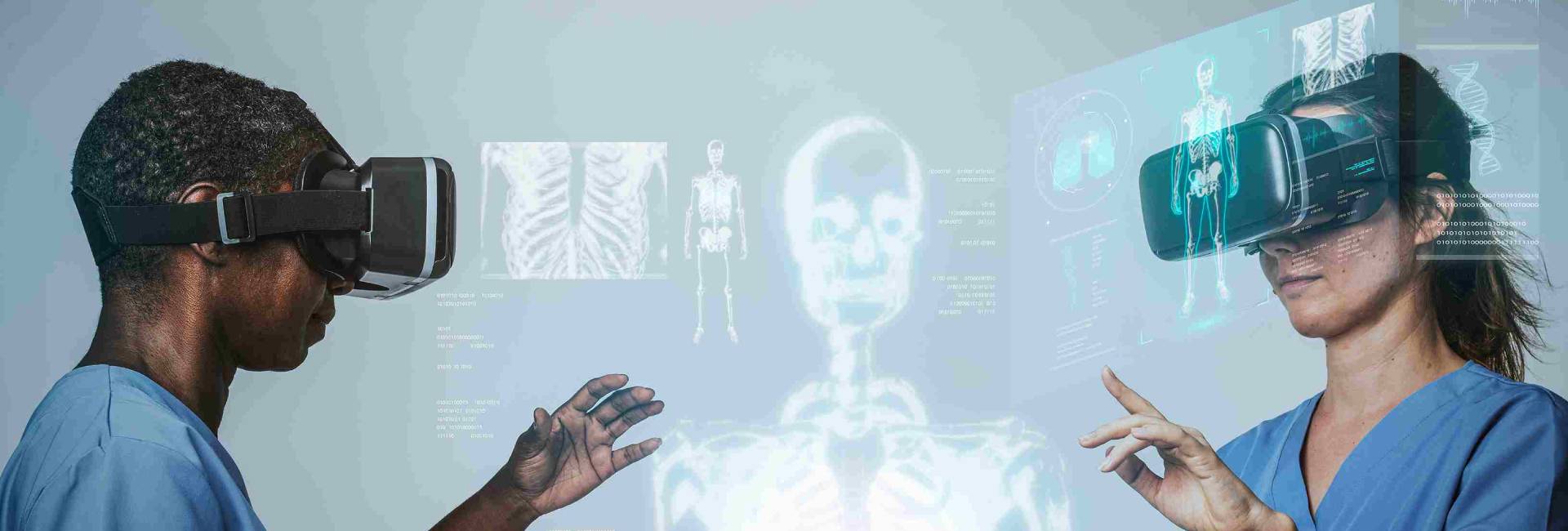Telehealth and Telemedicine
In recent years, virtual reality (VR) has become a transformative force in the healthcare industry, particularly in telehealth and telemedicine. This cutting-edge technology enhances communication between patients and healthcare providers, allowing medical information to be conveyed seamlessly, regardless of geographical location. VR can also alleviate patient concerns by providing a sense of the doctor’s physical presence, thereby fostering a stronger patient-doctor relationship.
Telemedicine is revolutionizing how patients receive healthcare by eliminating the need for physical visits to hospitals. This means no more long commutes or waiting in line for consultations. VR-based telehealth systems offer a cost-effective alternative to traditional healthcare methods, which often come with hefty fees. Patients living in remote areas particularly benefit from this innovation, as it grants them access to top-tier healthcare services that would otherwise be unattainable.
The immersive nature of VR telemedicine consultations enhances patient satisfaction by offering engaging experiences that involve patients more actively in their treatment plans. Healthcare providers can streamline their operations, speed up diagnoses, and improve treatment outcomes through the efficient delivery of care. Overall, VR in telehealth holds the promise of transforming patient experiences and creating a more efficient healthcare system.
Improved Surgical Procedures
Virtual reality in medicine is making significant strides, especially in the field of surgery. It is a valuable tool for training new doctors and enhancing the skills of practicing surgeons. By minimizing errors and potential complications, VR helps ensure safer surgical outcomes. In the future, AI-powered robots may assist in performing complex surgeries, with doctors controlling and managing them remotely. This could be further enhanced by creating a digital twin of the patient’s body, allowing surgeons to study and compare cases to determine the best surgical approach.
VR eliminates the need for cadavers, offering surgeons a risk-free environment to practice and refine their techniques. This groundbreaking method of technical training evaluation ensures improved health outcomes. Regular practice using VR allows surgeons to master complex procedures quickly and improve their techniques, ultimately leading to better patient care.
Transformational Pediatric Care
One of the most exciting applications of VR in healthcare lies in pediatric care. Children, who often experience fear, pain, and anxiety during medical procedures, can benefit immensely from immersive and enjoyable VR experiences. This technology helps make medical visits less intimidating, particularly for children on the autism spectrum. Through gamification, VR can enhance their communication skills, helping them connect with others and learn in a stress-free environment.
Numerous children have already experienced the benefits of VR healthcare applications, and the future looks promising with the integration of mixed reality. VR treatments can be administered remotely, reducing the need for hospital visits. For procedures such as catheterization, children can remain calm and relaxed, making their medical experiences more pleasant. By crafting customized VR experiences based on a child’s interests, healthcare providers can significantly reduce anxiety associated with hospital visits, promoting quicker healing and overall well-being.
Holistic Pain Management
VR is also making waves in the realm of pain management. This technology offers an intuitive approach to pain relief, enhancing the effectiveness of medications and treatments while reducing dependency on medicine. VR works by distracting the brain from focusing on pain, creating an interactive and relaxing environment for patients. Studies have shown that VR can reduce pain scores by nearly half.
VR applications reduce anxiety and help patients relax, tailoring pain management to provide optimal care. Patients can gain a better understanding of the signals their brain receives from their body, allowing them to identify the type and source of pain and manage it more effectively. Unlike many pain medications, VR has no side effects and can hasten relief. It also offers an exciting experience, allowing patients to explore virtual worlds, which contributes to improved overall health and wellness.
Mental Health
The intersection of virtual reality and mental health is one of the most promising areas of healthcare innovation. VR provides a safe environment for practitioners to create stimuli and evaluate patient responses to challenges without any risk. For individuals with phobias, such as fear of water, enclosed spaces, or insects, tailored VR environments can help them confront and manage their fears safely. Doctors can control and adjust these environments to meet specific patient needs.
Cognitive behavior therapy (CBT), a widely used psychotherapy technique, is now being enhanced with VR technology. This approach helps treat eating disorders like bulimia and binge-eating by showing patients what their bodies could look like with a proper diet. VR is also being employed in the treatment of substance abuse and addiction, including smoking, alcohol, and narcotic drugs. By simulating real-life situations in a virtual environment, healthcare providers can monitor patient responses and design effective treatment plans.
Stroke Patient Rehabilitation
VR is playing a crucial role in stroke patient rehabilitation, utilizing brain imaging and VR headsets to facilitate faster recovery. For amputees and individuals in physiotherapy, VR offers a range of gamified activities that promote movement and recovery. Patients with upper arm mobility issues can engage in virtual activities like slicing fruit, while those with restricted lower leg mobility can participate in virtual football games. The AI embedded in these VR programs monitors patient actions and suggests more efficient movements to expedite recovery.
Dentistry
As the cost of VR technology becomes more affordable, it is finding its way into dentistry. Fear of dental procedures is common, and VR headsets provide a welcome distraction for patients undergoing treatments like drilling or extractions. By immersing themselves in multisensory experiences, patients can focus on something other than the discomfort, making their dental visits more bearable.
Autism Therapy
VR is proving to be especially beneficial for children with autism or Attention Deficit Hyperactivity Disorder (ADHD). VR simulations provide a safe space for these children to manage their fears, improve communication skills, and reduce social anxiety. Activities such as maintaining eye contact, using public transport, and navigating crowded classrooms are commonly practiced in VR environments, helping children build confidence and develop essential life skills.
In conclusion, virtual reality is revolutionizing the healthcare industry, offering innovative solutions across various fields. From telemedicine to surgical training, pediatric care to mental health, VR is enhancing patient experiences, improving outcomes, and making healthcare more accessible and efficient. As technology continues to advance, the potential applications of VR in healthcare are limitless, promising a brighter future for patients and providers alike.
For more Information, Refer to this article.


































